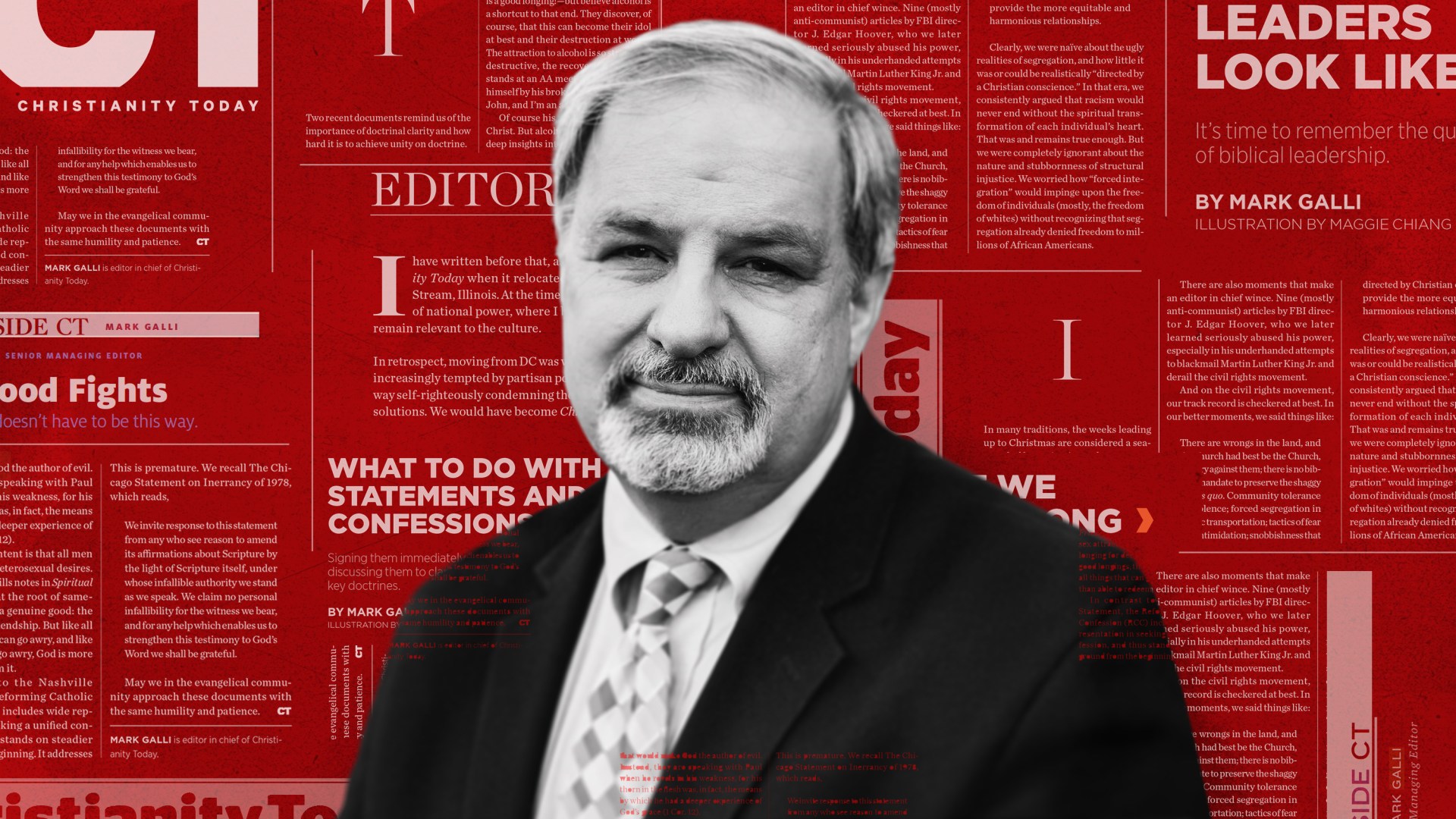My introduction to Mark Galli came when he hired me to be assistant editor at Christian History magazine in 1997. As summary of his editorial approach, he handed me the new issue on Eastern Orthodoxy.
“Our approach, as usual, is to try to understand Orthodoxy from the perspective of the Orthodox,” he wrote in that issue’s introduction. “We hope there are times in the issue when you think, That’s pretty cogent—and attractive.… Some will assume we’re trying to evangelize for Orthodoxy. Hardly. We just happen to believe that we cannot truly understand a historical subject unless we can empathize with it.”
Mark continued to empathize with and be attracted to the people, movements, and ideas he covered at Christian History and later at Christianity Today. He rarely left them behind: You won’t go long talking to Mark without hearing wisdom gleaned from the church fathers, Francis of Assisi, Karl Barth, Gerhard Forde, or others along his journey.
But even as he paddled in various Christian streams, Mark resolutely remained an evangelical, with commitments forged in the Presbyterian wars of his years as a pastor and wielded with grace. CT editors and writers can be tempted to despair at evangelicalism, to compare the worst of this movement against the best of others. And the strength of this semper reformandaactivist movement can easily enable self-righteousness. Mark’s rule has been steadfast: We don’t wag fingers. For years he kept a sign posted on his door for all editors to heed: “Love your evangelical reader as yourself.” Borrowing from Chesterton, he’d remind us: Evangelicals are not the problem; I am.
There was an unspoken corollary to that statement: Lectures aren’t the answer; grace is. Mark avoided the error of setting right doctrine and theology against grace. He saw doctrine as a gift of grace, and grace as the direction that right doctrine points to. Nowhere did I experience this more than amid a dark night of the soul I experienced 14 years ago after a miscarriage. Scripture and prayer turned to ash in my mouth. God seemed capricious and heartless. Close friends rebuked me or told me there was no answer to my questions. Mark, on the other hand, listened quietly and then simply said: Don’t stop asking those questions. Don’t put them aside. Press into them. I’m eager to hear what you learn. He knew the only way out was through, because he knew how God’s grace and mercy work.
Mark retires as CT’s editor in chief in early January (see his farewell editorial). For his 30 years here, he has wanted to help evangelicals to better empathize with and love each other, and to better understand God’s grace, mercy, and truth. And in a true journalist’s fashion, he has demonstrated that the best way to communicate those values is to “show, not tell.”
Ted Olsen (@TedOlsen) is CT’s editorial director.










